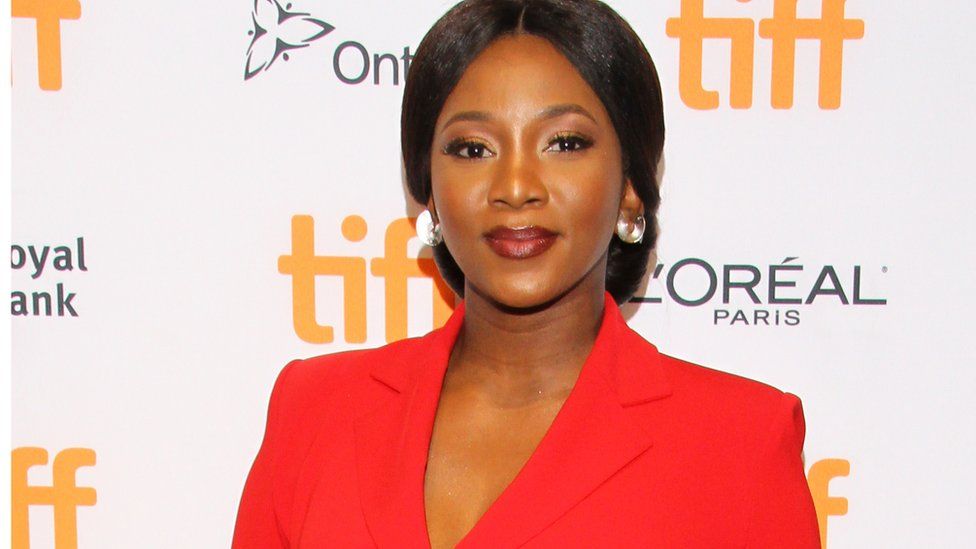Lionheart: Nigeria's Oscar choice disqualified over English dialogue
- Published

Nigeria's first-ever Oscar submission for best international feature film has been disqualified by award organisers, sparking criticism from its director.
Films in this category, formerly best foreign language film, must have "a predominantly non-English dialogue track".
However, the 95-minute film Lionheart is largely in English, with an 11-minute section in the Igbo language.
Director Genevieve Nnaji said the film represented how Nigerians communicate.
But some in Nigeria questioned why it had been submitted in the first place, given the clear rules around what films are eligible for the category.
The disqualification of the film by The Academy of Motion Picture Arts and Sciences was announced to voters in an email on Monday, according to The Wrap.
Ava DuVernay, director of Selma and A Wrinkle in Time, questioned the decision on Twitter, pointing out that English is Nigeria's official language.
Allow Twitter content?
This article contains content provided by Twitter. We ask for your permission before anything is loaded, as they may be using cookies and other technologies. You may want to read Twitter’s cookie policy, external and privacy policy, external before accepting. To view this content choose ‘accept and continue’.
Ms DuVernay became the first black woman to direct a live-action film with a budget of more than $100m in 2016.
Ms Nnaji, who directed and starred in Lionheart, thanked Ms DuVernay for speaking out, saying the film "represents the way we speak as Nigerians".
She added: "This includes English which acts as a bridge between the 500+ languages spoken in our country."
In another tweet, she said: "We did not choose who colonized us. As ever, this film and many like it, is proudly Nigerian".
Right movie, wrong competition
by Nduka Orjinmo, BBC News, Lagos
Lionheart's disqualification has led people to question how the Nigerian selection committee could have misunderstood the rules.
The film's submission was seen as a turning point for the country's film industry, known as Nollywood, and it was befitting that actor-cum-film-director Genevieve Nnaji was at the heart of it.
No-one deserved the shot at winning an Oscar more.
She entered Nollywood at a point when it was more interested in churning out quantity and her quality was there for all to see. But as is now clear, Lionheart was the wrong movie to have been nominated.
The manner in which it has been thrown out says a lot about Nollywood and one of the criticisms levelled against it: poor attention to detail.
Nnaji's comment about colonisation has not gone down well among some people, with them arguing that she is unnecessarily playing the victim.
But there is hope that this disqualification can be a turning point for Nollywood - and perhaps see movies produced in one of the many local languages brought to the world.
English is still the official language of Nigeria because of British colonisation, which lasted for nearly a century until independence in 1960.
Lionheart, which is currently streaming on Netflix, is about a Nigerian woman trying to keep her father's company together in a society dominated by men.
The Tanzanian making 'pure African' film costumes
The best foreign language film category was changed ahead of the 2020 awards to best international feature film, with the Academy saying that the reference to "foreign" was "outdated within the global filmmaking community".
A record 93 countries submitted entries to be considered in the international category this year.
- Published30 August 2018
- Published31 May 2019
- Published5 August 2019
- Published24 February 2019